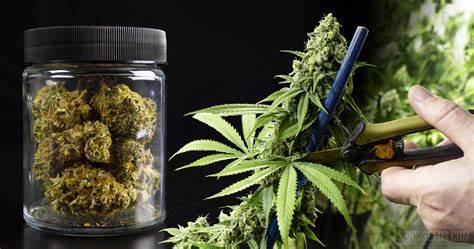What Are Cannabis Terpenes?
Cannabis, a plant that has been utilized for various purposes for centuries, is gaining more attention today due to its diverse chemical composition and potential therapeutic benefits. While most people are familiar with cannabinoids like THC and CBD, another group of compounds called terpenes plays a crucial role in the cannabis plant's characteristics and effects. Terpenes are aromatic compounds found in various plants, including cannabis, and are responsible for the plant's distinctive smells and flavors. In this article, we will explore cannabis terpenes in detail and understand their significance in the world of cannabis.
Terpenes are organic compounds produced by plants to deter herbivores and attract pollinators. In addition to cannabis, terpenes can be found in fruits, vegetables, and other herbs. They are synthesized in the plant's resin glands, which are the same glands that produce cannabinoids like THC and CBD. Over 200 different terpenes have been identified in cannabis, each with its unique aroma and potential effects.
These aromatic compounds not only provide cannabis strains with their characteristic scents but also work in synergy with cannabinoids to produce a phenomenon known as the entourage effect. The entourage effect suggests that cannabinoids and terpenes, when combined, may have a more significant impact on the body than when used individually. In other words, terpenes may enhance or modulate the effects of cannabinoids, resulting in a more comprehensive and nuanced experience.
Different cannabis strains can contain varying terpene profiles, leading to a wide range of aromas and potential effects. Some common terpenes found in cannabis include:
-
Myrcene: This terpene is also found in hops, mangoes, and lemongrass. It is known for its sedative and relaxing effects and is believed to enhance the overall psychoactive experience of THC.
-
Limonene: As the name suggests, limonene is responsible for the citrusy aroma found in cannabis strains like Lemon Haze. It is associated with elevated mood and stress relief.
-
Pinene: This terpene is abundant in pine trees and has a distinctive pine scent. Pinene is believed to have anti-inflammatory properties and may help improve airflow and respiratory function.
-
Linalool: Known for its floral scent, linalool is also found in lavender and chamomile. It is often associated with relaxation and anti-anxiety effects.
-
Caryophyllene: This terpene has a spicy, peppery aroma and is found in black pepper and cloves. Caryophyllene is unique as it can also interact with the body's endocannabinoid system, potentially offering anti-inflammatory and analgesic effects.
These are just a few examples of the many terpenes present in cannabis. Each terpene can contribute to the overall effects and therapeutic potential of a particular strain. Moreover, terpenes can also be found in various cannabis products, including oils, concentrates, and edibles. Some manufacturers even isolate specific terpenes and reintroduce them into products to enhance certain characteristics or create unique blends.
It's important to note that while terpenes are generally considered safe, they can vary in their effects and may interact with other compounds. Therefore, it is crucial to understand the terpene profiles of different cannabis strains and products to make informed decisions based on personal preferences and desired outcomes.
In conclusion, cannabis terpenes are aromatic compounds found in the cannabis plant that contribute to its distinct smells, flavors, and potential effects. These compounds work alongside cannabinoids to create a synergistic relationship known as the entourage effect. Understanding the role of terpenes in cannabis can help individuals navigate the wide array of strains and products available and make choices that align with their preferences and wellness goals.



Leave a comment
This site is protected by hCaptcha and the hCaptcha Privacy Policy and Terms of Service apply.